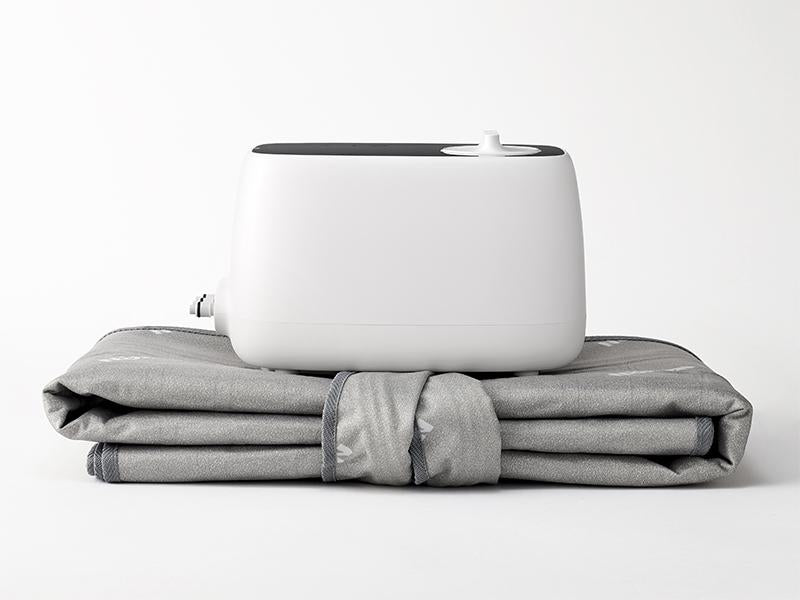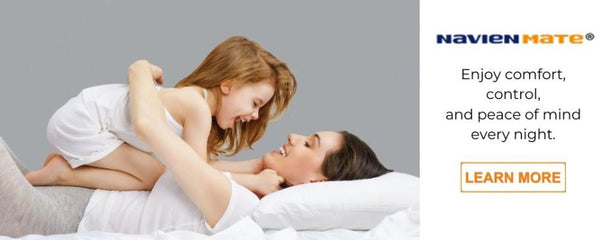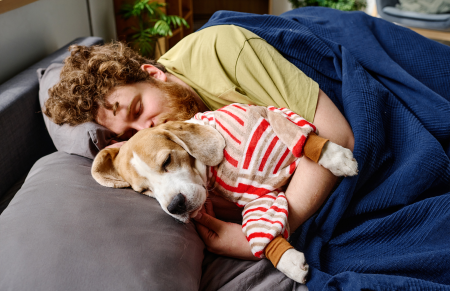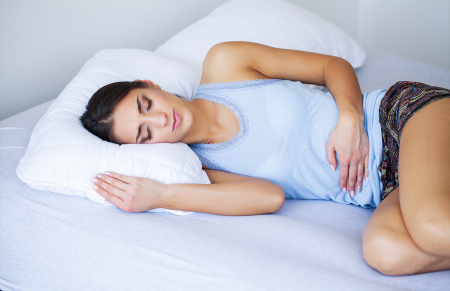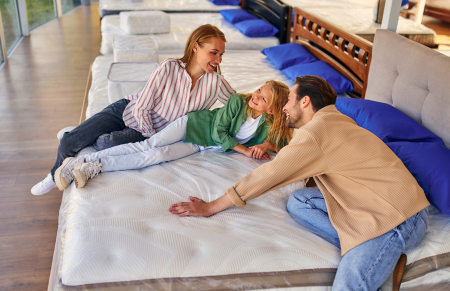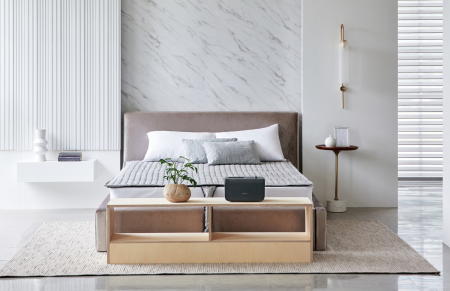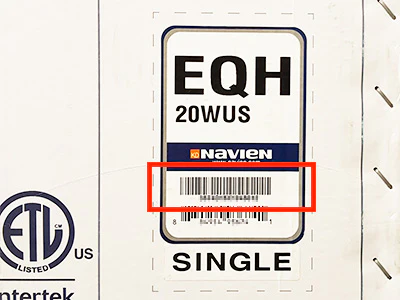With winter starting in early November, you may have had difficulty keeping the house warm, which can make for a difficult night’s sleep. Luckily, there are options to help you keep the sheets warm no matter what time of year it is. The two most popular bed heating devices are water heated mattress pads and electric heated blankets. While they both work towards the same end, some significant differences might influence which one is best for you.
1. Electric Blankets
1.1 How do they work
1.2 Are Electric Blankets Safe?
2. Water-Heated Mattress Pads
2.1 How Do They Work?
2.2 Are Water-Heated Mattress Pads Safe?
3. The Verdict
Electric Blankets
Electric blankets are one of the most traditional methods for keeping the bed warm at night. These heated blankets work by using coils of insulated wire in between layers of fabric. When plugged in, blanket, the electrical wires heat up inside the blanket and can be effective at keeping you warm during the cold months. They’re also portable and can be used wherever you have a functional outlet.
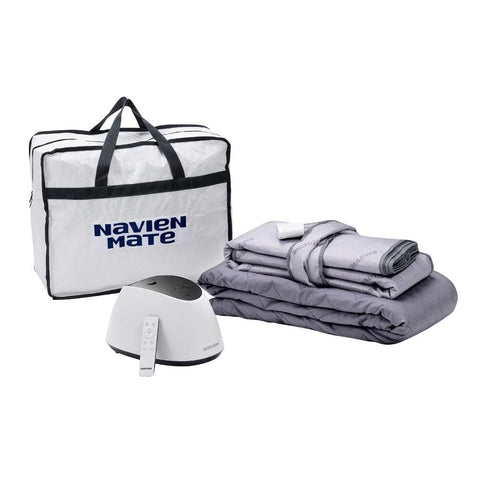
How Do They Work?
An electric blanket consists of interconnected coil wires. These wires are protected by a heat-resistant plastic coating. When the blanket is plugged into an outlet these wires provide the blanket with a steady heat source.
The wires heat to the desired temperature, and the blanket itself can be used as a mattress cover or as a covering.
No matter which brand or type of electric blanket you use, there are large connectors on the ends used to channel the electricity from the outlets.
Electric blankets typically have thermostats and temperature gauges that can be adjusted. Many, but not all, have auto shut-offs that prevent overheating and potential fire hazards.
Typically, electric blankets consume around 200 watts of electricity, although this will depend on the setting. If an electric blanket is left on for 5 hours, it will consume 1 kilowatt-hour. This could cost you anywhere from 5 and 15 cents, depending on where you live. Read about therapeutic mattress covers.
Are Electric Blankets Safe?
While people have been using electric blankets to stay warm for decades, they do carry some risks. Any device that uses electricity as a heating element can pose a danger, especially if wires are exposed. These blankets are prone to frays that could be dangerous, so it’s important that you stop using your blanket if it is damaged in any way.
One of the most significant safety risks when it comes to electric blankets is the fact that the wires get hot. When you use an electric blanket, the heat is not evenly distributed, so you may feel cold in some spots and hot in others. Some people might turn the blanket up to compensate for the cold spots, which could burn their skin at the hotter points.
Those who have diabetes are especially at risk of burns because of neuropathy, which makes them unable to feel when something is too hot. This means that they are more prone to burns from electric blankets.
It is also crucial to follow your brand’s instructions. Some blankets cannot be placed in a washing machine, while others can’t be folded.
Most blankets also instruct not putting other blankets on top of it. You must understand the appropriate use and care of your blanket before using it. Damaging the cord, coils, or controls could have unwanted results.
Water-Heated Mattress Pads
A water heated mattress pad is similar to an electric blanket; only it uses a different type of heating element: water. Unlike an electric blanket, these bed warming pads are meant to be a mattress warmer, not as a cover.
The most significant benefit of water-heated mattress pads over the traditional electric blanket is that the temperature is completely regulated. Instead of focusing the heat into a few areas, the water continuously circulates to provide a more even heat distribution for additional comfort.
These water-heated mattress pads should be used during the cold months, when warming your entire house becomes expensive. It’s not cost-effective to keep the heat at a high level in your living room, kitchen, and common areas when everyone is sound asleep in bed.
Experts recommend turning your heat down at night to save money, but many people can’t sleep well when it’s too cold. The water mattress pad is ideal for these types of situations, making sleep more comfortable and your wallet a little fuller.
Couples enjoy heated mattress pads since everyone can enjoy the heat without the risk of one partner stealing all of the blankets. There are even models that allow for different temperature zones in case one person needs a little more warmth than another. People with arthritis and chronic back pain also enjoy the therapeutic benefits of constant heat throughout the night.
LIke electric blankets, these mattress pads are extremely portable and can be taken with you on the go.
How Do They Work?
Water-heated electric mattress pads use circulating warm water to distribute heat evenly throughout the mattress.
With a small heating unit, the water warms to a specified temperature. One significant advantage of these mattress pads is that they offer dual side control so that the left and right sides can be set independently.
Next, the heating unit, which is connected to the mattress topper, circulates the water through tubes. The heat from the water then warms up the entire mattress. Using water effectively heats the mattress evenly, so there are no cold spots and no areas of extreme heat like there are with electric blankets.
The circulated water goes back through the heating unit, where the temperature is checked and adjusted based on the set temperature. The water is then circulated back through the mattress topper. In regards to power consumption, they can use between 60 to 90 watts of electricity per side (or 120 to 180 watts) if kept running all night. This ends up only costing a few cents per day – much cheaper than running your furnace.

Are Water-Heated Mattress Pads Safe?
Water heated mattress pads are designed for safety and efficiency. Unlike electric blankets that can burn you, the water regulated within the water-heated mattress pad never gets too hot or too cold, keep you and your family safe all night long.
Electric blankets expose you to electromagnetic fields and fire hazards that water-heated mattress pads do not. However, as with all electronics, it’s important that you read the directions and never misuse your mattress pad as incorrect use can be dangerous.
You should also always make sure that you turn the bed warmer pad off when you’re done with it to reduce the risk of an electrical fire.
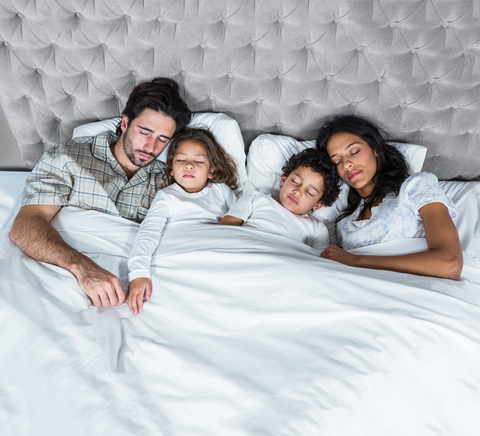
The Verdict
When it comes to finding the right bed warmer this winter, it’s ultimately up to you to decide which option is best for you. However, with all of the benefits of water-heated mattress pads and very few risks, it’s not shocking that many people have decided to forgo the electric blankets.
You may not want to get rid of your electric blanket for things like spending time in front of the television or staying warm while you’re not in bed.
For sleeping, though, water-heated mattress pads are the most efficient option and can keep you comfortable and cozy all night long. With no risk of burns due to inefficient heating, you can rest assured that your family is not only sound asleep, but safe.
